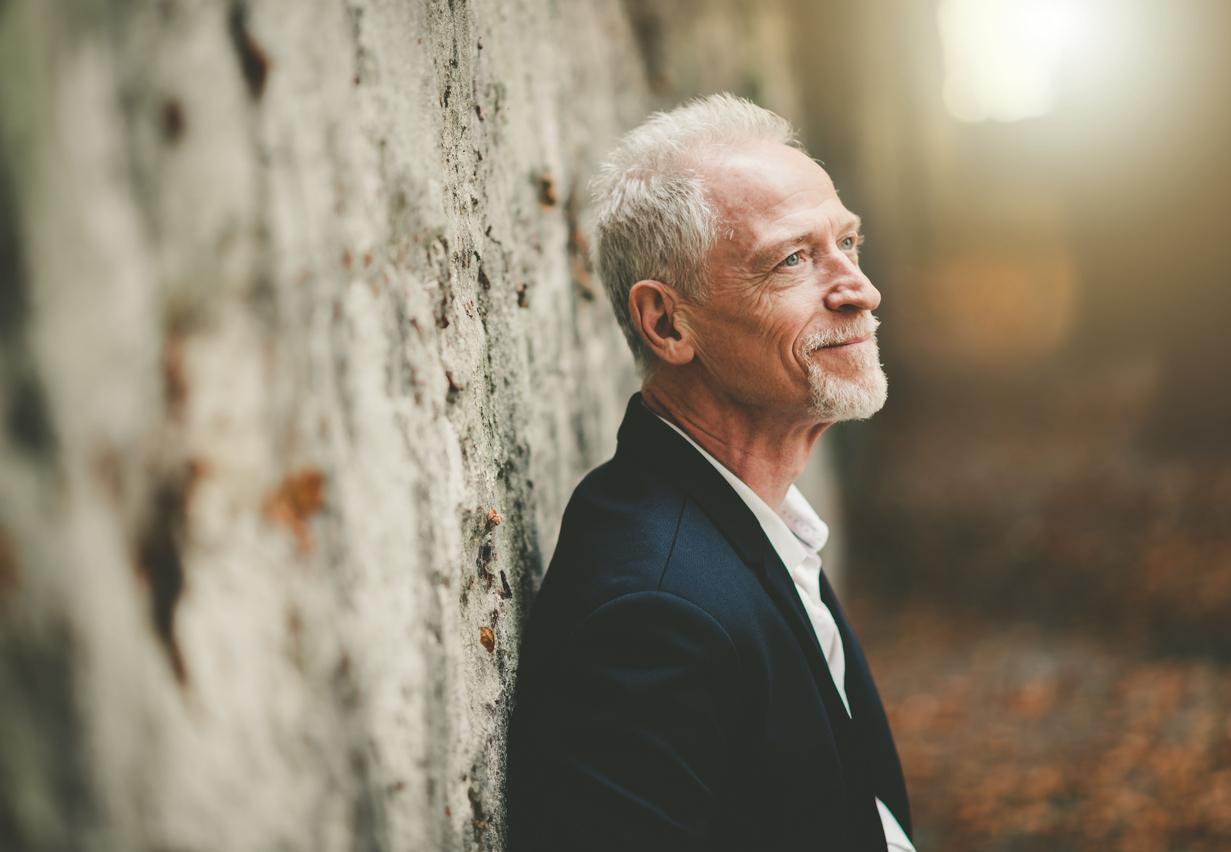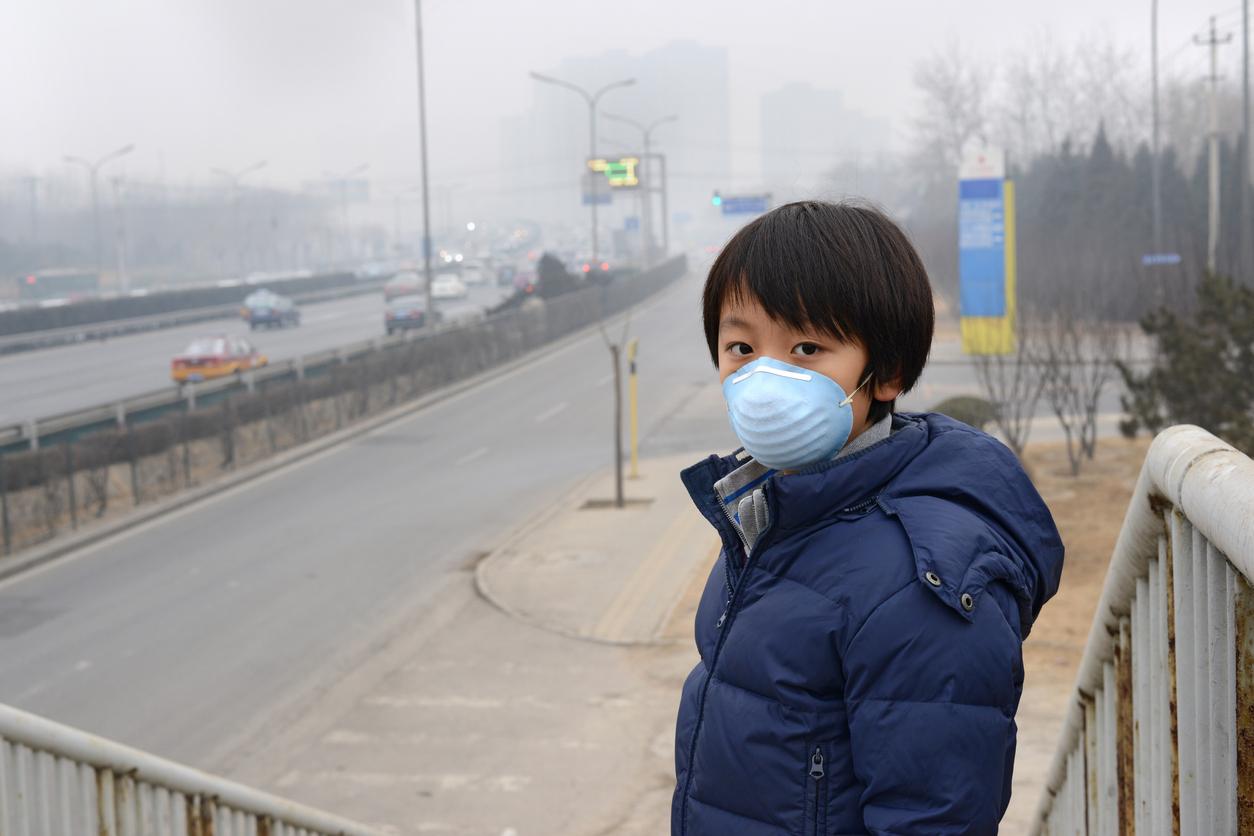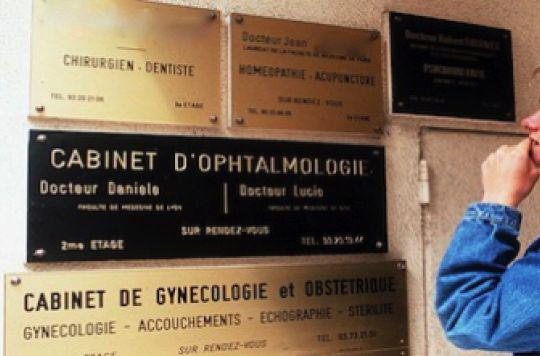A high share of internationally educated practitioners is found among new doctors and dentists. This is what the DREES notes.

In 2015, France had 1.9 million healthcare professionals. A DREES book published a few days ago sketch the portrait of white coats.
The different aspects of the trades and careers of these professionals are analyzed: current workforce and past development, geographical distribution, remuneration, training, working conditions, etc.
First element, of many health professionals work with a diploma obtained abroad. “Their workforce has particularly increased in recent times,” notes the management.
According to data from the shared directory of health professionals (RPPS), it identifies approximately 21,800 active physicians registered with the Order in this case. That’s 10% of all doctors. This proportion, although higher than ten years ago, still places France below the average for OECD countries, far behind the United Kingdom, the United States or Canada, but ahead of the ‘Germany or the Netherlands, however, specifies the DREES.
A quarter of new registrations to the Order
And doctors aren’t the only ones affected. 2,600 dentists with foreign qualifications (6% of the total) practice in France, as well as 2,000 pharmacists (3%) and 1,400 midwives (6% of the total). As a result, in recent times, the proportion of new members of the Order who hold a foreign diploma is particularly high. Both for doctors and dentists. They now represent a quarter of new registrations to the Order.
Over the past three years, around a third of them had French nationality. “It is likely that they are often French people who have chosen to follow all or part of their medical studies abroad, in order to maximize their chances of success,” indicate these statisticians.
Eastern medicine is exported to France
The place of the diploma of doctors who studied abroad, when it is given, is most often located in Eastern Europe (in 29% of cases). Romania in the lead, the CNOM recently underlined in a survey. Western Europe (28%) and the Maghreb (25%) follow. And the latter have a particular profile, doctors with foreign qualifications are more represented among specialists (14%) than among general practitioners (5%) in 2015.
Given the constraints linked to their status, they work less often as a liberal. But when this is the case, they are more often located in Île-de-France, rather than in the “attractive” regions of the south of France (Aquitaine, Languedoc-Roussillon, PACA, etc.).
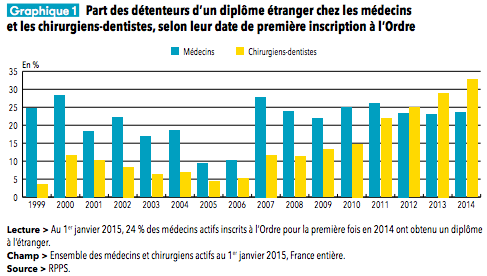
Same phenomenon among paramedics
Finally, the phenomenon is the same among paramedics. Every year since 2003, nearly four in ten of the new graduates of physiotherapy registered in the directory have studied outside France, and nearly three in ten have graduated from speech therapy.
However, these new graduates abroad are predominantly French at the time of their registration in the Adeli directory: this is the case for nearly half (45%) of physiotherapists authorized to practice over the past three years, and even almost all (95%) speech therapists.
“Much more markedly than for their colleagues, doctors or dentists, we can assume that this is often part of a strategy of bypassing French health studies in order to ensure better chances of success”, conclude the authors of study.
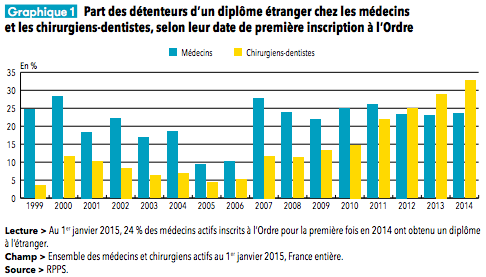
.







